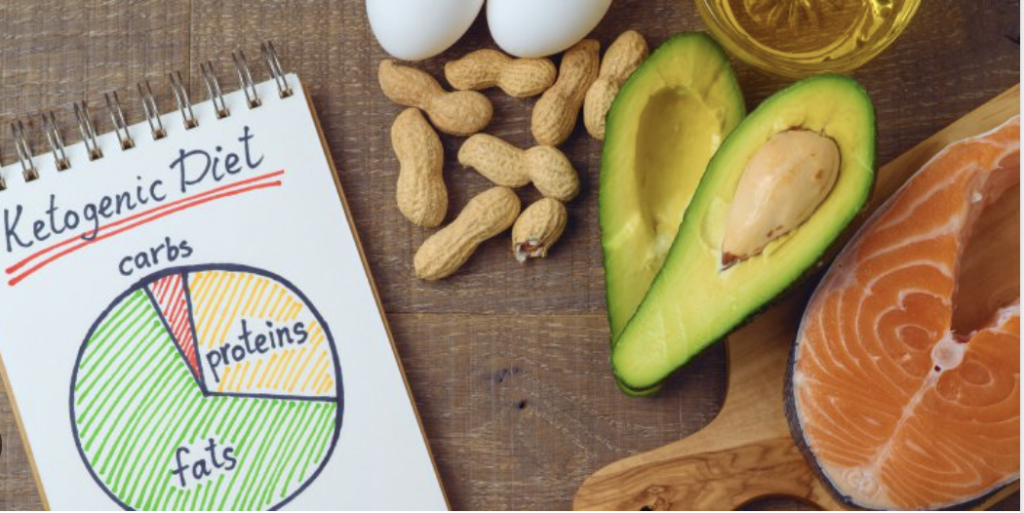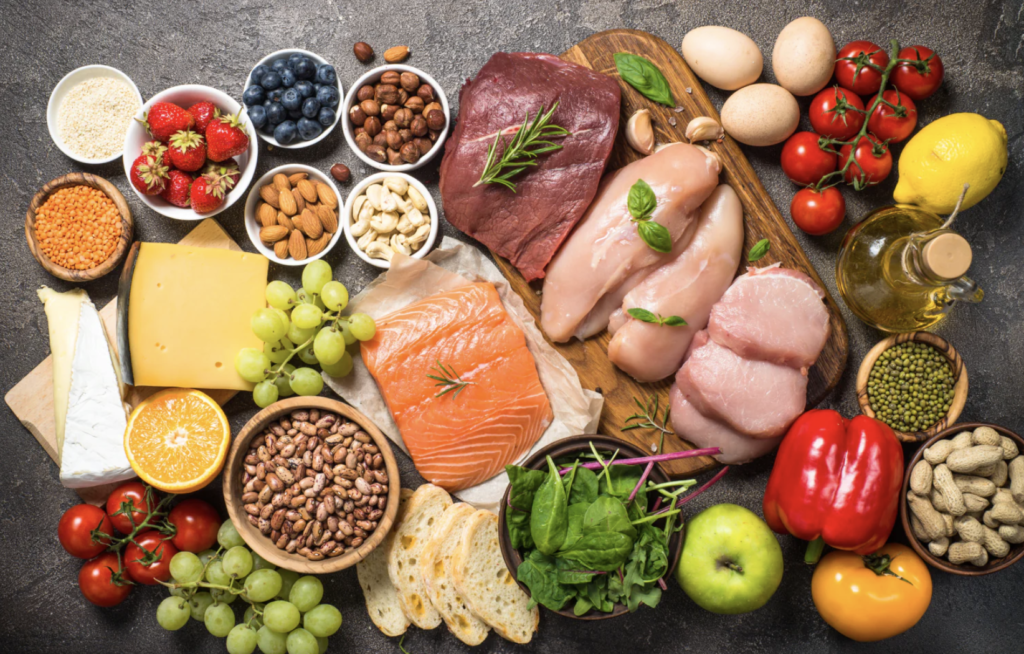
Are you curious about the keto diet and how it can transform your health and weight loss journey? Look no further! In this comprehensive guide, we’ll delve into everything you need to know about the keto diet, from its fundamentals to its potential benefits and risks.
Here are some of the best resources that can help you achieve fast results:
- ⭐ The Keto Snacks Cookbook (Physical) – Free+Shipping ⭐Book
- ⚡️The Ultimate Keto Meal Plan⚡️ Make $37 AOV
- KETOSIS + ACV GUMMIES Dietary supplement – weight loss
What is the keto diet?
The ketogenic diet, often shortened to “keto,” is a high-fat, low-carbohydrate eating plan designed to shift your body into a state of ketosis. In ketosis, your body burns fat for fuel instead of carbohydrates, leading to rapid weight loss and other health benefits.
How Does It Work?
The idea behind the ketogenic diet for weight loss is that when you deprive the body of glucose, which is the body’s primary fuel and is produced by consuming carbohydrates, your body will produce ketones, or alternative fuel, from stored fat. Hence the word “keto”-genic. Because it cannot store glucose, the brain has the highest daily requirement, requiring roughly 120 grams of glucose. When very few carbohydrates are consumed, such as during a fast, the body initially releases glucose from stored glucose in the liver and briefly breaks down muscle.The body starts using fat as its main fuel if this keeps up for three to four days and all of the stored glucose is used up. Insulin levels in the blood also drop at that point. In the absence of glucose, the liver can use fat to make ketone bodies.
When ketone bodies accumulate in the blood, this is called ketosis. Healthy individuals naturally experience mild ketosis during periods of fasting (e.g., sleeping overnight) and very strenuous exercise. Proponents of the ketogenic diet state that if the diet is carefully followed, blood levels of ketones should not reach a harmful level (known as “ketoacidosis”) as the brain will use ketones for fuel, and healthy individuals will typically produce enough insulin to prevent excessive ketones from forming. [2] How soon ketosis happens and the number of ketone bodies that accumulate in the blood is variable from person to person and depends on factors such as body fat percentage and resting metabolic rate.

What is ketoacidosis?
What is ketoacidosis?
Excessive ketone bodies can produce a dangerously toxic level of acid in the blood, called ketoacidosis. During ketoacidosis, the kidneys begin to excrete ketone bodies along with body water in the urine, causing some fluid-related weight loss. Ketoacidosis most often occurs in individuals with type 1 diabetes because they do not produce insulin, a hormone that prevents the overproduction of ketones. However in a few rare cases, ketoacidosis has been reported to occur in nondiabetic individuals following a prolonged very low carbohydrate diet
Food List and Meal Plans
Foods to Eat:
- High-fat meats (e.g., beef, pork, chicken, bacon)
- Fatty fish (e.g., salmon, mackerel, sardines)
- Eggs
- Avocados
- Cheese
- Butter and ghee
- Healthy oils (e.g., olive oil, coconut oil, avocado oil)
- Low-carb vegetables (e.g., spinach, broccoli, cauliflower)
- Nuts and seeds
- Berries (in moderation)
Foods to Avoid:
- Sugary foods (e.g., soda, candy, pastries)
- Starchy foods (e.g., bread, pasta, rice)
- Most fruits (except for small portions of berries)
- Legumes (e.g., beans, lentils, chickpeas)
- Grains (e.g., wheat, barley, oats)
- Processed foods and refined oils
Sample Meal Plan:

- Breakfast: Scrambled eggs with avocado and spinach cooked in coconut oil
- Lunch: Grilled chicken Caesar salad with avocado and olive oil dressing
- Dinner: Baked salmon with roasted broccoli and cauliflower drizzled with butter
- Snacks: Cheese slices, almonds, or celery sticks with almond butter
Proposed Benefits
The keto diet has gained popularity for its potential health benefits beyond weight loss, including:
- Improved blood sugar control and insulin sensitivity
- Enhanced mental clarity and cognitive function
- Increased energy levels and endurance
- Reduced inflammation and risk of chronic diseases
- Appetite suppression and reduced cravings
Weight Loss Effects
One of the primary reasons people turn to the keto diet is for weight loss. By restricting carbohydrates and promoting fat burning, many individuals experience significant and rapid weight loss on the keto diet, especially in the initial stages.
Health Risks
While the keto diet offers numerous benefits, it’s essential to be aware of potential health risks, including:
- Nutrient deficiencies due to limited food choices
- Increased risk of kidney stones and electrolyte imbalances
- Potential for unhealthy cholesterol levels, especially in some individuals
- Difficulty maintaining the diet long term due to its restrictive nature
Expert Opinions
Opinions on the keto diet vary among experts. Some praise its effectiveness for weight loss and improving certain health markers, while others caution against its potential risks and emphasize the importance of individualized dietary approaches.
Who Should Not Try It?
While the keto diet may be beneficial for many individuals, it may not be suitable for everyone. You should avoid the keto diet if you:
- Have certain medical conditions (e.g., pancreatic disorders, gallbladder disease)
- Are pregnant or breastfeeding?
- Have a history of disordered eating or restrictive dieting
- Are unwilling or unable to commit to the diet’s strict guidelines
Summary
In summary, the keto diet is a high-fat, low-carbohydrate eating plan designed to promote weight loss and improve various aspects of health. By shifting your body into ketosis, the keto diet can lead to rapid fat burning, increased energy levels, and other potential benefits. However, it’s essential to be mindful of potential risks and consult with a healthcare professional before starting the keto diet, especially if you have any underlying health concerns. Ultimately, the keto diet may be a valuable tool for some individuals seeking to improve their health and achieve their weight loss goals, but it’s not suitable for everyone.
